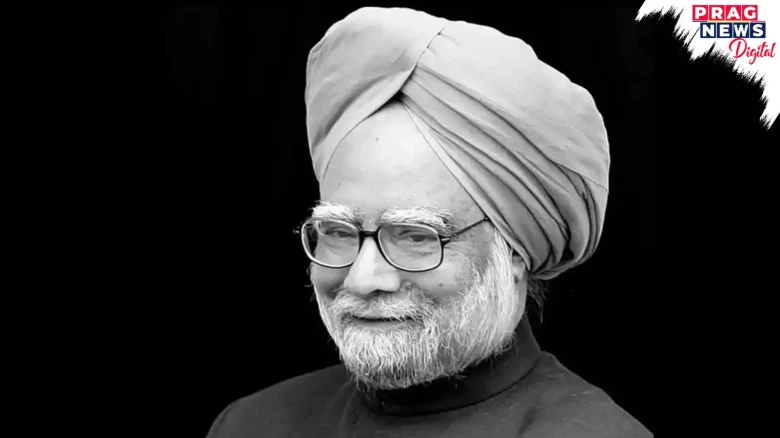North East

Singh first started working for the government in 1971 as an economic advisor in the Commerce Ministry and a year later was promoted to the chief economic advisor…
Digital Desk: The veteran Congress leader, former Prime Minister Dr. Manmohan Singh, passed away on Thursday, 26th December, while being admitted at AIIMS Delhi; he was 92. The Union Government also declared a week of mourning in the country in his honor. Singh was born on 26th September, 1932, in a village of Punjab in undivided India; however, he is a living legend in every sense of the term in terms of success, both in his academic and economic careers as well as in the field of governance.
Academic Excellence
After completing studies at Punjab University, Singh was employed by the university as an inmate and later studied at the University of Cambridge, graduating with First-Class Honours in Economics in 1957 and later at Nuffield College, Oxford, where he received a D.Phil. in Economics in 1962. Critiquing India’s
inward-looking trade policy, his scholarly work, India’s Export Trends and Prospects for Self-Sustained Growth (1964),. He was an economics faculty member at Punjab University and the Delhi School of Economics to enhance his fame as a standout economist.
Administrative Visionary
Singh first started working for the government in 1971 as an economic advisor in the Commerce Ministry and a year later was promoted to the chief economic advisor. He was the finance secretary, the governor of the Reserve Bank of India, the deputy chairman of the Planning Commission, and the prime minister’s economic advisor. Internationally he worked as Secretary General of the South Commission in Geneva from 1987-90 and UNCTAD Secretariat.
Stakeholder Engagement Through Partnership Transformative Finance Minister
During his term as the finance minister from 1991 to 1996 in the P.V. Narasimha Rao government, Singh put in place the economic reforms liberalizing the Indian economy to make it a world power. This period has made Singh synonymous with vision and determination, and this made him be received internationally.
Prime Ministerial Legacy
Manmohan Singh took the charge of the 13th Prime Minister of India on 22 May 2004 and continued till 2014 in two consecutive tenures. His rule witnessed historic legislation like the Mahatma Gandhi National Rural Employment Guarantee Act—2005, which guarantees at least a hundred days of wage employment in a financial year to every household in rural areas; then the Right to Information Act—2005, which was enacted to provide for access to information; finally the National Food Security Act—2013, which declared two-thirds of India’s population as entitled to avail subsidized food grains.
Awards and Recognition
Singh won many honors: he was awarded the Padma Vibhushan, India’s second highest civilian award, in 1987.
Singh bid farewell to the Rajya Sabha in April 2024 after his long career in politics. His humanitarian contributions as an overhaul economist, policy maker, and statesman are widely remembered and cherished in India’s annals.
Leave A Comment